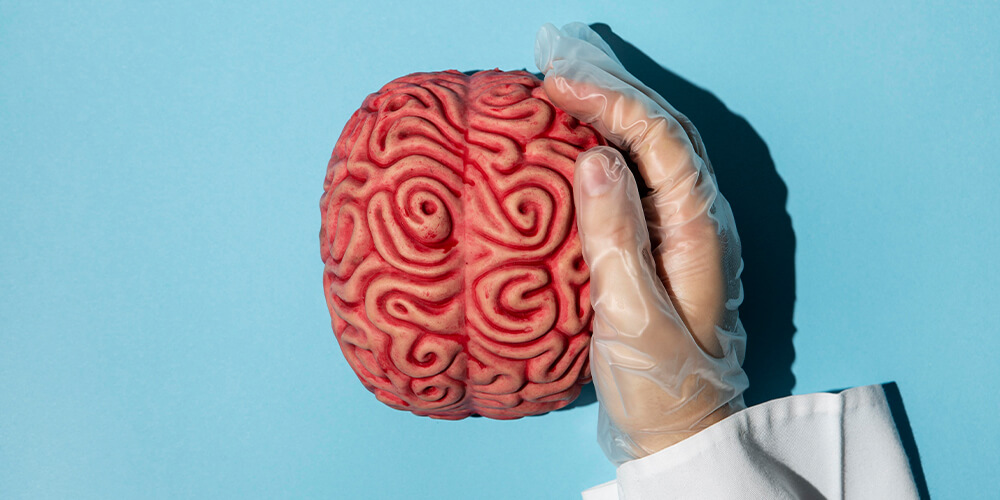Home » Brain Bleeding Treatment 2026

Brain bleeding treatment, also known as cerebral hemorrhage, is a type of stroke caused by an artery in the brain bursting and causing localized bleeding in the surrounding tissues. This bleeding kills brain cells. Brain hemorrhages can be caused by head trauma, high blood pressure, aneurysms, blood vessel abnormalities, or blood or bleeding disorders. The consequences of Brain bleeding treatment are often severe and can be life-threatening. This article delves into the causes, symptoms, diagnosis, and treatment of brain bleeding.
One of the most common causes of Brain bleeding treatment is head trauma. This can occur from falls, car accidents, sports injuries, or assaults. The impact can cause blood vessels in the brain to rupture.
Chronic high blood pressure can weaken the walls of the blood vessels in the brain, making them more susceptible to rupture. This condition, known as hypertension, is a significant risk factor for brain hemorrhages.
An aneurysm is a bulge in a blood vessel caused by a weakness in the blood vessel wall. These can rupture and lead to brain bleeding. Aneurysms can develop from birth or be caused by high blood pressure and other conditions.
Conditions like arteriovenous malformations (AVMs) and cavernous malformations are blood vessel abnormalities that can lead to brain bleeding. AVMs are tangles of abnormal blood vessels connecting arteries and veins, while cavernous malformations are clusters of abnormal, dilated blood vessels.
Certain medical conditions and medications can affect the blood’s ability to clot, increasing the risk of brain bleeding. Conditions such as hemophilia and sickle cell anemia, as well as the use of anticoagulants and antiplatelet medications, can contribute to this risk.
A sudden, severe headache is a common symptom of brain bleeding treatment. This is often described as the worst headache of one’s life and is sometimes referred to as a “thunderclap” headache.
Nausea and vomiting can occur as the brain responds to the increased pressure and irritation caused by the bleeding.
Weakness or numbness, particularly on one side of the body, can be a sign of brain bleeding treatment. This occurs due to the affected area of the brain losing function.
Changes in vision, such as double vision, blurred vision, or loss of vision, can be symptoms of brain hemorrhage.
Brain bleeding treatment can impact areas of the brain responsible for language, leading to difficulty speaking or understanding speech.
The loss of coordination or balance can occur if the bleeding affects the cerebellum or other areas responsible for motor control.
A thorough medical history and physical examination are crucial first steps in diagnosing brain bleeding treatment. This includes checking for risk factors such as high blood pressure, head trauma, and the use of blood-thinning medications.
A CT scan is often the first imaging test used to diagnose brain bleeding treatment. It can quickly show the presence and extent of bleeding.
An MRI provides more detailed images than a CT scan and can help identify smaller areas of bleeding and the underlying cause.
In some cases, a lumbar puncture (spinal tap) may be performed to check for blood in the cerebrospinal fluid, which can indicate brain bleeding.
Immediate medical care is essential for anyone suspected of having a brain hemorrhage. Treatment focuses on stabilizing the patient, controlling bleeding, and reducing pressure in the brain.
Medications to lower blood pressure may be administered to prevent further bleeding and reduce the risk of complications.
Anticonvulsant medications may be given to prevent or control seizures, which can occur following brain bleeding.
A craniotomy is a surgical procedure where part of the skull is removed to access the brain. This may be necessary to remove a blood clot, stop ongoing bleeding, or relieve pressure.
Stereotactic surgery uses imaging guidance to precisely target and treat areas of the brain affected by bleeding. This minimally invasive technique can be used to remove small blood clots or repair blood vessels.
A craniotomy is a surgical procedure where part of the skull is removed to access the brain. This may be necessary to remove a blood clot, stop ongoing bleeding, or relieve pressure.
Embolization involves injecting materials to block blood flow to abnormal blood vessels, such as AVMs, reducing the risk of bleeding.
Physical therapy helps patients regain strength, balance, and coordination. This is essential for recovering motor function affected by brain bleeding treatment.
Occupational therapy focuses on helping patients regain the ability to perform daily activities, such as dressing, eating, and bathing.
Speech therapy assists patients in recovering language skills and the ability to communicate effectively.
Psychological support is crucial for addressing the emotional and cognitive impacts of brain bleeding treatment. This can include counseling, cognitive-behavioral therapy, and support groups.
Regular monitoring and management of blood pressure are essential to reduce the risk of brain bleeding treatment. This can involve lifestyle changes, such as a healthy diet, regular exercise, and medications.
Taking precautions to avoid head trauma, such as wearing helmets while cycling or playing contact sports and using seat belts in cars, can help prevent brain bleeding.
Proper management of medical conditions that increase the risk of brain bleeding, such as diabetes and blood disorders, is vital. This includes adhering to prescribed treatments and regular check-ups.
Unless medically necessary, avoiding the use of blood-thinning medications can reduce the risk of brain bleeding. Patients on such medications should be closely monitored by their healthcare provider.
Brain bleeding is a serious medical condition that requires prompt diagnosis and treatment. Understanding the causes, recognizing the symptoms, and knowing the treatment options are crucial for managing this condition. With appropriate medical care and rehabilitation, many patients can recover and lead fulfilling lives. Preventive measures, such as managing blood pressure and avoiding head trauma, are essential in reducing the risk of brain bleeding.